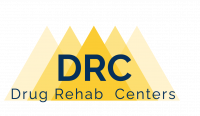Understanding the Cycle of Addiction

Addiction is surrounded by so many misconceptions. One of the most common of all is that drugs and/or alcohol addiction can be tackled unassisted. The fact is, addiction is a deceptive disease and it has the power to negatively affect various areas of your life such as family, memory, motivation, and more.
Many believe that sipping even a couple of drinks can make them addicted. However, addiction is way more complicated than this. And, the complexity lies in the brain of the addicted.
According to the American Psychological Association, substance addiction is a chronic brain disorder. Certain chemical changes in the brain lead to an addiction cycle, but this is a time-consuming process. It goes through several stages which can take short periods or even years to develop.
Addiction Cycle Defined
Recovery isn’t a distant dream for addicts. Anyone can adopt a healthy lifestyle and get rid of substance addiction. However, the path to recovery may take anywhere from months to years.
Despite these facts, you might have heard a lot of stories of how drugs cost employment or alcohol destroys relationships. All such events occur only when an addicted individual refuses to make changes to his or her routine. In such cases, professional assistance and a positive mindset are the most important things.
Fundamentally, the addiction cycle includes the following 6 key stages:
- The beginning
- Substance abuse
- Tolerance
- Dependency
- Addiction
- Relapse
Let’s break down each of them one by one.
The Beginning
The cycle of addiction begins as soon as an individual tries a certain substance. Many reasons may lead a person to try drugs or alcohol; it could be a social event where most of the people are consuming alcohol, a prescription drug for pain management, or just peer pressure to consume drugs to fit in a group.
Substance Abuse
This stage begins when a person starts consuming drugs or alcohol repeatedly. For example, they are taking higher doses of prescription pills without consulting the doctor, or their alcohol consumption has increased as a response to stress or anxiety.
It’s quite difficult to tell exactly when this stage begins. However, it can be considered as a point when a person uses substances for a high or euphoric response. Such uses of drugs or alcohol aren’t triggered by personal intentions, social aspects, or peer pressure.
Tolerance
When an individual keeps on abusing alcohol or drugs for a long time, they get into the third stage of addiction — tolerance. Several chemical changes begin to happen during this stage and that may lead to the inability to get high or feel euphoric in response to a certain amount of dose that previously caused a significant high. As a result, the addicts in this stage increase their doses or the frequency of substance use. Eventually, it ends up with relatively heavier substance abuse.
Dependency
In this stage, a person gets dependent on the substance to feel normal. It gets hard for them to function properly if they do not get the substance of their choice.
Addiction
Post the dependency stage, if a person continues to abuse a substance for a long period, they enter the addiction stage. As mentioned earlier, addiction is a chronic illness that stems from compulsive substance use despite several consequences in terms of physical, psychological, and mental health. This is a dangerous stage as an addict’s primary focus is always on using a certain substance. Their job, family, love life, social life, finances, and much more gets badly affected by their addiction and it takes over their life as well.
Relapse
Most addicted individuals eventually realize the dangers and consequences of addiction and get sick of their life around their out-of-control substance abuse. As a result, they start thinking about stopping the use of drugs or/and alcohol. However, certain triggers, withdrawal symptoms, or other factors may lead them to relapse — a situation when they are forced to get back into their compulsive behavior of substance addiction.
This is one of the most difficult, exhausting, and painful stages of all. If a person trying to remain sober relapses and uses the substance for any reason, they feel guilty and shameful which can even worsen the situation. During this stage, they may feel like going back to unhealthy environments and behavior or isolating themselves from social activities.
Get Help For Your Substance Addiction
It’s important to seek help when a person is trying to quit substances. The recovery process can be hard and may involve multiple attempts to get sober and even several relapses.
However, substance addiction can be defeated, no matter what. All you need is the right motivation and the right people, we can help at drug rehab centers.
If you or someone you love is suffering from addiction, we are willing to help. Call us at 866-559-4256.
